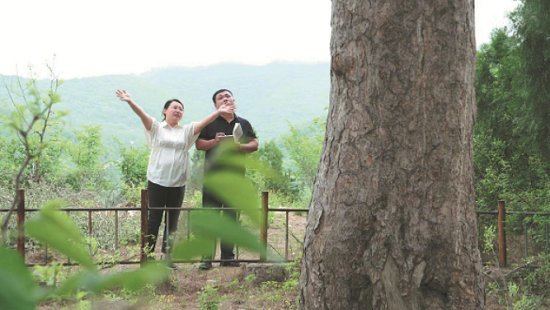
Jizhou is home to 3,831 ancient trees, more than 80 percent of Tianjin's total. ZHU XUEBING/FOR CHINA DAILY
He now runs his own homestays dedicated to Jizhou's old trees, as well as shops that mostly sell pears from the old trees.
He's had thousands of visitors and said that he makes a profit of 10 to 14 yuan ($1.40 to $1.95) per kilogram of pears.
In March, the 17th Tianjin People's Congress revised the city's greenery regulations to improve the protection of old trees.
The city has set up a database, conducted research into each of the trees, organized a special task force to patrol them and enhanced environmental protection in nearby areas.
It has also strengthened the monitoring of pests.
"The district has strengthened physical and biological protection, reducing the use of chemical pesticides and improving the scientific protection of old trees," said Li Yan, a management executive at the garden and forestry service center in Jizhou.
The district also announced plans to protect its 5 million square meters of green space, its 50,000 trees and, in particular, its leafy senior citizens.
Green space accounts for 53.5 percent of the district's total surface area, and 81 percent of the mountains.





